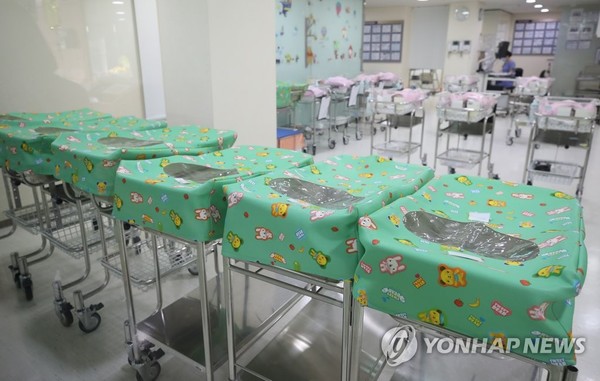In June, the birth registration bill, an amendment to the ‘Act on Registration of Family Relations’ passed through the National Assembly. The birth registration bill extends the obligation of birth registration from parents to medical institutions. This system was introduced as a measure to address the social issue of unregistered children, often referred to as "ghost children," following the discovery of abandoned infant corpses in refrigerators in Suwon. However, alongside the birth registration bill, there is an ongoing debate regarding the introduction of the anonymous birth system (Special Act on Protection of Pregnancy and Support for Crisis Pregnancies and Child Protection). This system aims to support parents who do not want to reveal their childbirth by offering options for anonymous childbirth or anonymously handing over their child to the state. The debate on the introduction of the Anonymous Birth System continues, with one side arguing that the government should support parents who want to give birth but do not want to raise the child, while the other side believes that concealing the process of pregnancy and childbirth is not desirable.

In June, after the discovery of the corpses of infants in Suwon, an investigation was conducted to locate children who had birth records but had not been officially registered. Through this investigation, the necessity of introducing an anonymous birth system for the safety of individuals who do not want to register their childbirths became evident. Therefore, the Korean government should introduce an anonymous birth system to ensure the safety of both mothers and children, as well as to prevent infant deaths and cases of child abuse.
Firstly, the anonymous birth system can protect the safety of children. The Suwon refrigerator baby case was just the tip of the iceberg concerning the myriad issues of nameless infants. In the routine checkup conducted by the Board of Audit and Inspection in June 2023, there was a total of 2,236 children with birth records but without official birth registrations. Subsequent complete enumeration showed that 51.6% of them could not even be found, and among those who were found, 256 were found to be deceased. Not registering a birth can result in exclusion from essential services such as vaccinations, which help ensure a child's health. Moreover, the absence of a death record can allow parents to conceal child abuse. Secondly, it can help prevent unintended side effects of implementing of birth notification system. With the birth notification system set to be enforced from next year, a child’s birth can also be registered by the medical institutions where they were born. The government and the ruling party are concerned that parents who do not want to register their child's birth might resort to giving birth outside of hospitals. This issue has similarities to the problems caused by the implementation of the Act on Special Cases Concerning Adoption in 2012, which made real-name birth registration a requirement for adoption. After the enforcement, birth mothers who could no longer give their child up for adoption anonymously turned to ‘baby boxes[1]’ as an alternative. According to the operating organization of the baby boxes, Jusarang Community, the number of children left in baby boxes increased by more than threefold within just one year of the Act on Special Cases Concerning Adoption’s implementation. Therefore, the exclusive implementation of the birth notification system can put both infants and birth mothers at risk. Thirdly, it ensures the child's right to know about their biological parents. In the case of children abandoned in baby boxes, they grow up never knowing who their biological parents are. The anonymous birth system records information about the parents when the government takes custody of a child. Later, when the child becomes adult, they can request information about their biological parents with the consent of the parents. During the legislative process of the anonymous birth system, it was resolved to protect the child's right to know by "protecting the mother's personal information while faithfully preserving birth records." Therefore, an anonymous birth system can protect the rights of children who want to know their biological parents.
The anonymous birth system can safeguard the fundamental rights to life and the right to know for unregistered children who are at risk. Furthermore, it can prevent the issue of mothers giving birth outside of hospitals that may arise due to the implementation of the birth notification system. Of course, the introduction of the anonymous birth system can be more effective when implemented alongside specialized programs such as counseling to assist both birth mothers and children. Therefore, the Korean government should introduce the anonymous birth system, along with the implementation of support programs, to ensure the protection of children.
[1] A "baby box" is a facility where infants who cannot be raised are left, and it is operated by a private organization in Korea. As baby boxes operate anonymously, abandoned infants are unable to obtain information about their biological parents.

